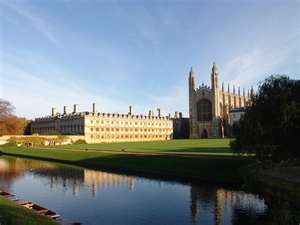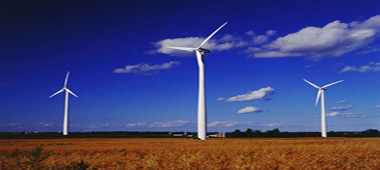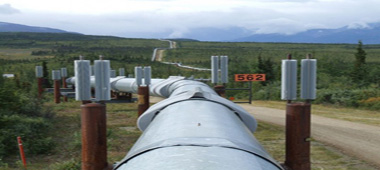Events
Recent events
EAFES Executive Director, Dr Michal Chudy recently attended the Eastern Cape European Union Renewable Energy Conference at the end of last year. Below are his observations of the situation and of the event itself.
Eastern Cape European Union Renewable Energy Conference
East London, Eastern Cape, republic of South Africa hosted a renewable energy conference from 28 – 30 November 2012. The conference was organized as a partnership project between the region of Eastern cape and the European Union. The Prime Minister of Eastern Cape Ms Noxolo Kiviet as well as EU ambassador in the Republic of South Africa Mr. Roeland van de Geer were both present. The other prominent guests included South African Minister of Public Enterprises Malusi Gigaba and Minister of Energy Ms Dipuo Peters.
The political influence of EU in distant regions such as South Africa is smaller than one would expect. Even though this country was colonized by an English and Dutch population, recently more significant players in the region include the USA and obviously China with India, although the influence of China is much weaker than in the rest of sub-Saharan region.
The EU- as the world leader in green energy and decarbonization demonstrated that it can be an important partner in the development of the region and the country. Eastern Cape is a rather less developed South African province with strong potential for renewable resources. The region has extraordinary conditions for wind, solar and biomass energy production. EU involvement in the building of renewable energy infrastructure in the region could bring strong benefits to both sides. South Arica is one of the worst CO2 producers on the Earth (per capita) as more than 90% electricity is produced from coal. Reducing this share is very much in the interest of the EU as well as the wider global community. The development of common renewable energy project would create job opportunities and bring skills development. It could alleviate energy poverty, reduce emissions and improve industrial competitiveness.
Nevertheless, the influence of the EU in the region could be increased in sensible way and not just through providing humanitarian relief. This conference was a great opportunity for investors to meet EU representatives, local government, businessmen and entrepreneurs in order to create or expand renewable energy projects.
http://greenenergy-ec.co.za/http://greenenergy-ec.co.za/
Summer school of sustainable energy
The EAFES Sustainable Energy Summer School was a great success! Thanks to all our delegates, speakers and facilitators for making it a fantastic event! Delegates can now visit our online resource centre here to download presentations from the event. Click here to view the gallery to see how it went.
EAFES promotes summer school to mark sustainable energy week!
 The European Agency for Energy Security (EAFES) will extend the closing date for applications for its Sustainable Energy Summer School until the end of Sustainable Energy Week on 22 June 2012. EAFES can also confirm the speakers lined up so far for its 2012 Summer School as part of a programme set to cover topics such as latest developments in energy technology, renewables, climate change, green transportation, nuclear energy and nuclear safety, energy security and energy policy, from Europe’s leading researchers in the field.
The European Agency for Energy Security (EAFES) will extend the closing date for applications for its Sustainable Energy Summer School until the end of Sustainable Energy Week on 22 June 2012. EAFES can also confirm the speakers lined up so far for its 2012 Summer School as part of a programme set to cover topics such as latest developments in energy technology, renewables, climate change, green transportation, nuclear energy and nuclear safety, energy security and energy policy, from Europe’s leading researchers in the field.
The summer school takes place from 26 August to 1 September 2012 at the University of Cambridge’s stunning and historical Magdalene College campus. EAFES is delighted to confirm that the following speakers will feature as part of the summer school programme:
Prof. D. Crawford-Brown, University of Cambridge
Dr Tim Coombs, University of Cambridge
Dr. Richard McMahon, University of Cambridge
Prof. Helmut Bock, Technische Universität Wien / Vienna University of Technology
Dr Christian Kirchsteiger, European Commission - DG Energy
Dr. Andreas Kronenberg, International Atomic Energy Agency
Keith Melton, President of EUREC Agency
Professor Nick Collings, University of Cambridge
Commenting on the summer school, Dr Michal Chudý, Executive Director of EAFES said, “I’m delighted to confirm the speakers for our summer school and would like to thank them for contributing to our aim to help young researchers and professionals in the energy sector consider the importance of tying up energy technology and possibilities with energy policy and foreign policy.
“The week-long event provides the opportunity for participants to carry out hands on research in the superconductivity and other labs at the University of Cambridge and to work with some of Europe’s leading researchers and policy makers in the energy sector.”
The 2012 summer school will provide the opportunity for participants to examine and understand the technological challenges of different energy sources in order to secure, clean, low-carbon, sustainable and affordable energy systems; take part in experimental demonstrations at research facilities of the University of Cambridge; understand and experience policy issues in energy and the main goals of European energy policy and security; be involved in high-level debates on energy research and energy security priorities; discuss and develop a collective vision for sustainable energy and improve communication and networking skills.
The application process for the summer school is drawing to a close but there is still time for interested parties to apply. Applications should be sent to eafes.school2012@eafes.eu before 22 June 2012 and places will be allocated before 30 June 2012. Up to 30 participants will be selected based on their application which should include a short CV, letter of recommendation and a short energy-related essay, which may then be published to the EAFES blog.
Due to funding offered by a range of EAFES partners, participants can benefit from attending the summer school for a modest fee of 450 EUR per student or 600 EUR per professional. This includes all tuition, meals, accommodation and transport during the summer school. Places are limited and will be allocated through the application process outlined at www.eafes.eu
Don’t miss your chance to attend the 2012 EAFES Sustainable Energy Summer School at the University of Cambridge
 The European Agency for Energy Security has now opened the application process for its 2012 Sustainable Energy Summer School and is urging students and professionals with an interest in sustainable energy technology and policy not to miss their chance to attend.
The European Agency for Energy Security has now opened the application process for its 2012 Sustainable Energy Summer School and is urging students and professionals with an interest in sustainable energy technology and policy not to miss their chance to attend.
The summer school will take place in the UK from 26 August to 1 September 2012 at the University of Cambridge’s stunning and historical Magdalene College campus.
Commenting on the summer school, Dr Michal Chudý, Executive Director of EAFES said, “This year we will hold our first ever sustainable energy summer school and it promises to be an excellent event. The programme will include a theoretical element featuring lectures and presentations as well as practical and interactive activities and great networking opportunities with policy, academic and energy research contacts and industry leaders. The courses throughout the week-long programme will be focused on the scientific, engineering, economic and political issues relating to sustainable energy and I’d recommend the summer school to anyone with an interest in sustainable energy, whether from a research, policy or other professional background.”
Following the success of the ‘Where is the energetic future of Central and Eastern Europe?’ conference organised by EAFES and the Centre for European Studies (CES) in December 2011, the 2012 summer school will provide the opportunity for participants to examine and understand the technological challenges of different energy sources in order to secure, clean, low-carbon, sustainable and affordable energy systems; take part in experimental demonstrations at research facilities of the University of Cambridge; understand and experience policy issues in energy and the main goals of European energy policy and security; be involved in high-level debates on energy research and energy security priorities; discuss and develop a collective vision for sustainable energy and improve communication and networking skills.
Due to funding offered by a range of EAFES partners, participants can benefit from attending the summer school for a modest fee of 450 EUR per student or 600 EUR per person. This includes all tuition, meals, accommodation and transport during the summer school. Places are limited and will be allocated through the application process outlined here
Up to 30 participants will be selected based on their application which should include a short CV, letter of recommendation and a short energy-related essay, which may then be published to the EAFES blog. Financial support may also be available to some candidates and will be allocated according to highest level of need. Applications should be sent to eafes.school2012@eafes.eu before 22 June 2012 and places will be allocated before 30 June 2012.
Events history
Workshop: "Where is the energetic future of Central and Eastern Europe?"

Venue: Hotel Tartuf, Pustý Chotár 495, 95175 Beladice, Slovak Republic
Date: 16-17 December 2011
The workshop was organized by the European Agency for Energy Security (EAFES) and the Centre for European Studies (CES). The aim of the workshop was to identify and analyze current energy dilemmas from different perspectives. Invited speakers were natural scientists, social scientists and diplomats.



